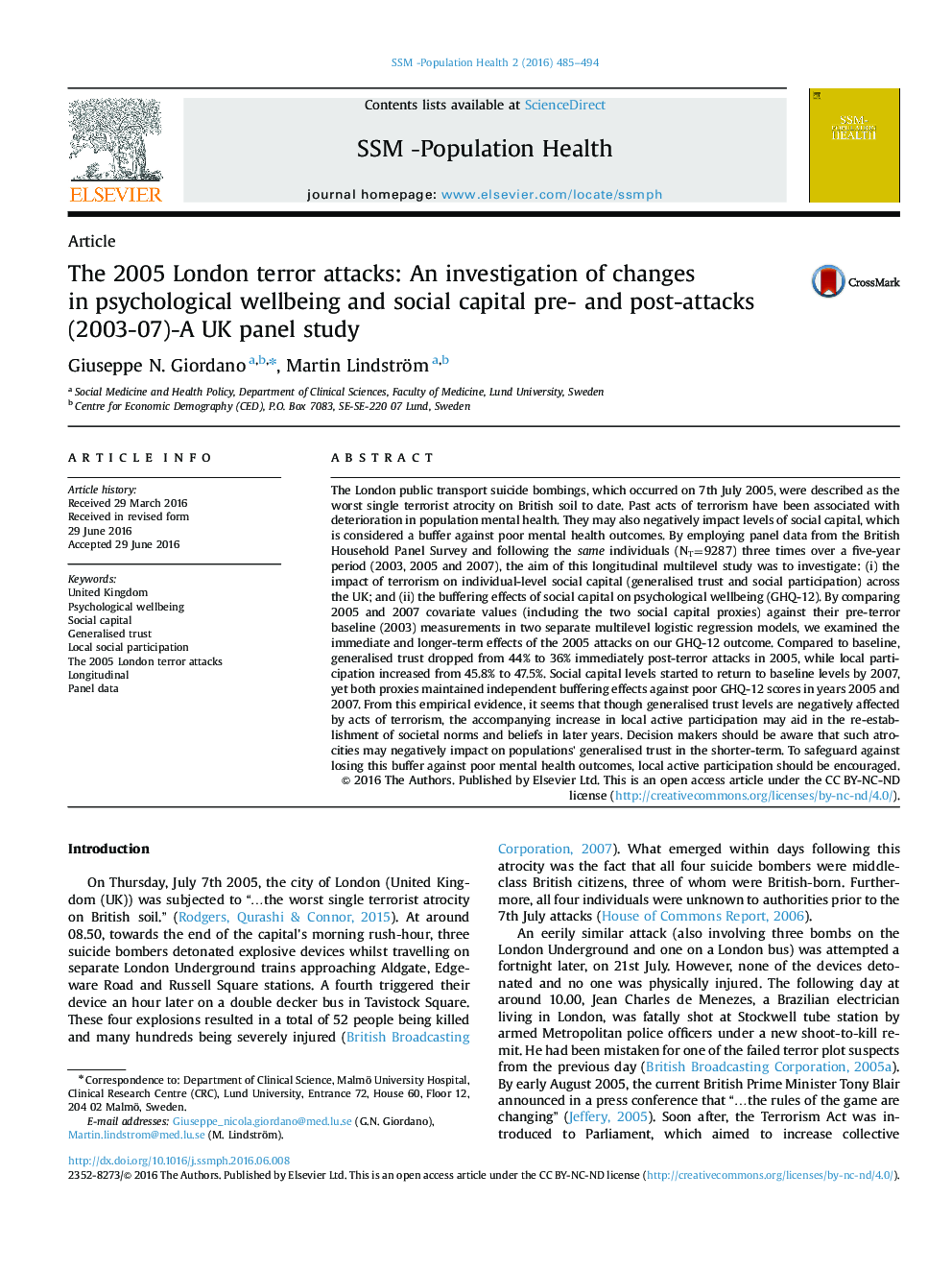| کد مقاله | کد نشریه | سال انتشار | مقاله انگلیسی | نسخه تمام متن |
|---|---|---|---|---|
| 1092355 | 1487260 | 2016 | 10 صفحه PDF | دانلود رایگان |
• The 2005 London terror attacks coincided with a depletion of generalised trust.
• Trust and participation provided an important buffer against poor psychological health.
• Local participation in times of crisis may help to re-establish societal norms.
The London public transport suicide bombings, which occurred on 7th July 2005, were described as the worst single terrorist atrocity on British soil to date. Past acts of terrorism have been associated with deterioration in population mental health. They may also negatively impact levels of social capital, which is considered a buffer against poor mental health outcomes. By employing panel data from the British Household Panel Survey and following the same individuals (NT=9287) three times over a five-year period (2003, 2005 and 2007), the aim of this longitudinal multilevel study was to investigate: (i) the impact of terrorism on individual-level social capital (generalised trust and social participation) across the UK; and (ii) the buffering effects of social capital on psychological wellbeing (GHQ-12). By comparing 2005 and 2007 covariate values (including the two social capital proxies) against their pre-terror baseline (2003) measurements in two separate multilevel logistic regression models, we examined the immediate and longer-term effects of the 2005 attacks on our GHQ-12 outcome. Compared to baseline, generalised trust dropped from 44% to 36% immediately post-terror attacks in 2005, while local participation increased from 45.8% to 47.5%. Social capital levels started to return to baseline levels by 2007, yet both proxies maintained independent buffering effects against poor GHQ-12 scores in years 2005 and 2007. From this empirical evidence, it seems that though generalised trust levels are negatively affected by acts of terrorism, the accompanying increase in local active participation may aid in the re-establishment of societal norms and beliefs in later years. Decision makers should be aware that such atrocities may negatively impact on populations’ generalised trust in the shorter-term. To safeguard against losing this buffer against poor mental health outcomes, local active participation should be encouraged.
Journal: SSM - Population Health - Volume 2, December 2016, Pages 485–494
